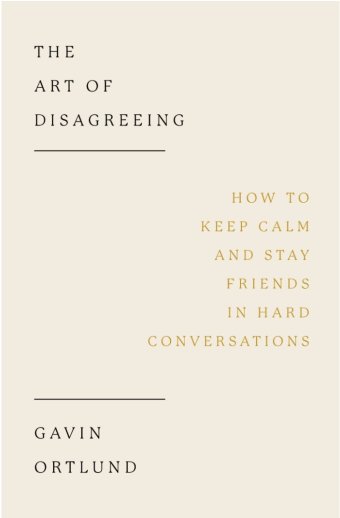
Jesus said:
"You have heard that it was said, 'Love your neighbor and hate your enemy.' But I say to you, love your enemies and pray for those who persecute you." (Matthew 5:43–44)
Matthew 5:21–48 includes six "You have heard ... but I say" statements. Notice Jesus doesn't say, "It is written," as he typically does when quoting Scripture. He says, "You have heard"—he's answering the popular summaries and applications of the Law in his day. Teachers had the first half right—"Love your neighbor" (Lev. 19:18)—but they smuggled in a second half the Old Testament never commands: "and hate your enemy."
In fact, the Old Testament leans the other way:
- "If you come across your enemy's ox or donkey wandering off, be sure to return it... help them with it." (Ex. 23:4–5)
- "If your enemy is hungry, give him food to eat; if he is thirsty, give him water to drink." (Prov. 25:21)
- "The foreigner residing among you must be treated as your native-born. Love them as yourself." (Lev. 19:34)
So where did "hate your enemy" come from? From a shrunken definition of neighbor. If neighbor means "my people—my clan, my team," the logic slides quickly to "love us, resist them." That wasn't Scripture; it was tribal common sense dressed in religious clothes.
You and I know the pull: almost everyone looks after "their own." We have a hard time believing our guy did wrong. Jesus pushes past that instinct. The true test of Christian love is how we treat those we're most tempted to dislike—the ones who mistreat us, oppose us, or simply stand outside our circle. In Matthew 5, the range runs from persecutors (5:44), to insulters (5:11–12), to people who don't even greet you (5:46–47). "Enemy" stretches from severe opposition to everyday slights. Whoever just came to mind—that's where obedience begins.
How do we love enemies?
1) Pray for them.
"Love your enemies and pray for those who persecute you." Prayer is one of love's deepest forms because it brings your enemy into God's presence. I've lived in the Midwest, where people are nice even if they don't like you. In Minnesota, it's called "Minnesota Nice." In the South, it's called "Bless Your Heart." You can act polite without wanting someone's good; you can't honestly pray for them without seeking it.
2) Greet them.
"If you greet only your brothers, what more are you doing than others?" (5:47) To greet is more than a tossed "hey"; it's a warm, humanizing welcome. Enemy-love refuses the snub. Make eye contact. Use their name. Don't avoid, don't glare, don't freeze them out.
3) Meet their needs.
Paul presses Proverbs into our hands: "If your enemy is hungry, feed him; if he is thirsty, give him something to drink... Do not be overcome by evil, but overcome evil with good" (Rom. 12:20–21; Prov. 25:21–22). Think of the 18-year-old young woman in Ann Arbor (1996) who stepped between an angry crowd and a fallen white supremacist to shield him from harm. She later said, "Nobody deserves to be hurt, especially not for an idea."
Why live this way? Jesus tells us: "so that you may be sons of your Father who is in heaven. For he makes his sun rise on the evil and on the good..." (5:45). If I was God's enemy and he loved me into his family, how can I withhold love from those who set themselves against me? If the Father was kind to me when I was ungrateful, how can I ration kindness only to the grateful? If he did not repay me according to my iniquities, how can I spend my days calculating payback for others' sins? We love enemies because that's how our Father loves.
Put it into practice this week:
- Name one "enemy" (from major hurt to minor irritation).
- Pray for their good each day.
- Greet them warmly the next time you see them.
- Meet one concrete need, however small.

Eritrea is the second or third most repressive country in the entire world. My friend Ghirmay recalls living in Eritrea and witnessing a neighbor being beaten for going to church. He once told me, "One Sunday, I heard her being beaten badly, but the next Sunday, she went back to church. I decided she must have something real, so I went to church without anyone asking or telling anyone. When I arrived, I felt the love of God for me, and became a Christian."
I once met a twenty-four-year-old man who had been beaten multiple times for being a Christian. This persecution didn't stop him from hiking for hours into the jungle to minister to eight families who had become believers, nor did it hinder him from traveling fifteen hours to receive more leadership training.
In Asia, I taught at a church where many up-and-coming church planters bore scars on their backs from being beaten by their Hindu parents for becoming Christians. A year after my visit, a homemade bomb was thrown into the church compound. The church carried on, as this type of persecution had become normal.


A short but helpful book you will want to commit to memory. It's hard to disagree with people. Gavin Ortlund helps us in The Art of Disagreement. I've read it a few times and keep coming back to it.
Thanks for checking in.
Sign up here to receive Darren Carlson's The Monday After email. This weekly newsletter is designed to encourage your faith and share inspiring stories of what God is doing around the world. Each edition features a short devotional, a story that will give you a glimpse of His work in unexpected places, and a resource you might find helpful.
10.13.25Better Paths
The longer I am in ministry, the more I appreciate all the work of Kevin Vanhoozer. Almost all issues I have faced at TLI and in pastoral ministry have been issues of hermeneutics, while the people I am talking to think the issues are related to inerrancy. The trouble is constantly […]
10.6.25First Things First
I know many of you have kids in youth sports. I last coached high school basketball in 2009; this year, I have jumped back in as a head coach—and wow, a lot has changed. Four observations: 1) The youth-sports industry feeds on parental anxiety. There's real money to be made from […]
9.29.25Forgiven People Forgive
Jesus said: For if you forgive others their trespasses, your heavenly Father will also forgive you, but if you do not forgive others their trespasses, neither will your Father forgive your trespasses. I've been thinking about forgiveness this week. Forgiveness is hard. It raises countless questions and exceptions. Last week, at […]
9.15.25Eager to Love
For readers outside the United States, here's why this week felt especially raw. On Wednesday, Sept. 10, conservative activist Charlie Kirk was shot and killed during an outdoor event at Utah Valley University. That same day in Evergreen, Colorado, a 16-year-old opened fire at a high school, wounding two fellow students […]
 Darren Carlson
Darren Carlson